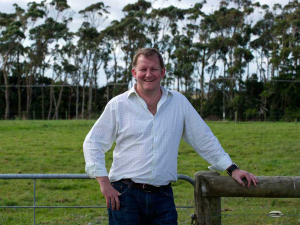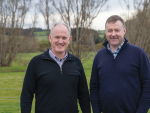The coronavirus epidemic is going to have a bigger impact than people think it is, according to Massey University Professor of Agribusiness, Hamish Gow.
He says the crisis has only been going for a month and believes that the full impact of the situation has yet to be felt by the country and – in particular – the rural community. Gow believes there is a greater level of financial stress across the industry than what many people perceive. He says it is likely that farmers will put away their cheque books and stop spending to preserve their cash-flow position.
“I think farmers are well aware of what is going on in the international market place and reports recently from the field days in the South Island suggest that farmers were looking rather than buying,” he told Rural News.
Gow says the coronavirus is most likely to affect perishable products going into China. He says this will tend to affect the meat industry more than the dairy sector. He notes there are reports of farmers have to wait up to three to four weeks to get stock killed at meat works in some parts of the country.
Gow says some companies are very exposed to the China market and we will just have to see how this situation plays out.
He says it raises the question of how strongly some NZ companies have been focused on the China market.











